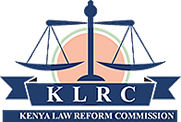(1) There is established the High Court, which--
(a) shall consist of the number of judges prescribed by an Act of Parliament; and
(b) shall be organised and administered in the manner prescribed by an Act of Parliament.
(2) There shall be a Principal Judge of the High Court, who shall be elected by the judges of the High Court from among themselves.
(3) Subject to clause (5), the High Court shall have--
(a) unlimited original jurisdiction in criminal and civil matters;
(b) jurisdiction to determine the question whether a right or fundamental freedom in the Bill of Rights has been denied, violated, infringed or threatened;
(c) jurisdiction to hear an appeal from a decision of a tribunal appointed under this Constitution to consider the removal of a person from office, other than a tribunal appointed under Article 144;
(d) jurisdiction to hear any question respecting the interpretation of this Constitution including the determination of--
(i) the question whether any law is inconsistent with or in contravention of this Constitution;
(ii) the question whether anything said to be done under the authority of this Constitution or of any law is inconsistent with, or in contravention of, this Constitution;
(iii) any matter relating to constitutional powers of State organs in respect of county governments and any matter relating to the constitutional relationship between the levels of government; and
(iv) a question relating to conflict of laws under Article 191; and
(e) any other jurisdiction, original or appellate, conferred on it by legislation.
(4) Any matter certified by the court as raising a substantial question of law under clause (3) (b) or (d) shall be heard by an uneven number of judges, being not less than three, assigned by the Chief Justice.
(5) The High Court matters--
(a) reserved for the exclusive jurisdiction of the Supreme Court under this Constitution; or
(b) falling within the jurisdiction of the courts contemplated in Article 162 (2).
(6) The High Court has supervisory jurisdiction over the subordinate courts and over any person, body or authority exercising a judicial or quasi-judicial function, but not over a superior court.
(7) For the purposes of clause (6), the High Court may call for the record of any proceedings before any subordinate court or person, body or authority referred to in clause (6), and may make any order or give any direction it considers appropriate to ensure the fair administration of justice.
